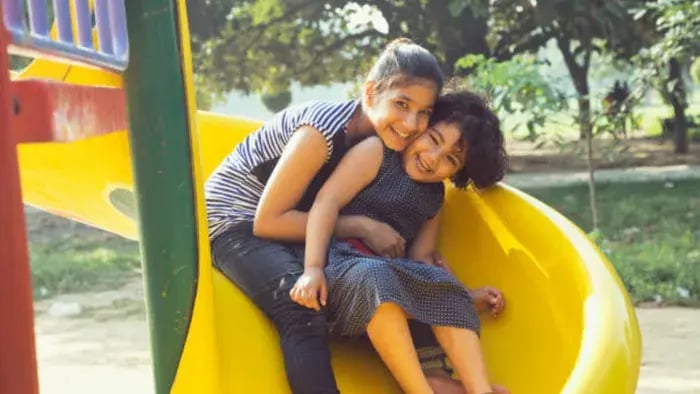How to Teach Kids New Skills: Fun, Age-Appropriate Strategies That Work
- Break It Down
- Use Visual and Hands-On
- Practice Daily
- Make It A Game
- Give Gentle Encouragement
- Don’t Correct Too Quickly
- Use Everyday Situations
- Involve the Whole Family
- Match Skills to Their Age and Ability
- Celebrate Progress, Not Perfection
Introduction
Every year, kids face and learn new skills to prepare them for the challenges they will face growing up, ranging from educational to life skills. Teaching kids new life skills is a task of purpose and patience. These skills range from learning to tie a shoe lace to brushing teeth, solving puzzles, and more. It is the parents' responsibility to teach their children age-appropriate skills so that they can understand daily life much better.

The best way to teach a child is to get them involved in natural and fun activities. For younger children, playful repetition using songs, colors, or role-play makes learning stick. As they get older, visual cues, step-by-step guidance, and positive reinforcement help them build confidence and independence. Whether it’s helping in the kitchen, planting a seed, or learning to pack their school bag, the skill becomes stronger when it’s linked to real-life use.
Parents play a big part in how children approach new experiences. Encouraging small wins, giving space to make mistakes, and turning learning into a shared moment builds not just skills but also trust and self-belief. With the right balance of consistency and creativity, you can help your child learn practical life skills that will stay with them as they grow.
10 Fun Age-Appropriate Strategies To Teach Kids New Skills

Break It Down
Kids can feel overwhelmed if a task seems too big. If you’re teaching your child to tie their shoes, start with just crossing the laces. Once they get that, move to making the loop. Breaking it down into small parts helps them build confidence with every little win.
Use Visual and Hands-On
Kids learn better when they see and do. If you’re teaching your child to button a shirt or water a plant, let them watch you first, and then guide their hands. Simple actions like folding clothes or peeling a banana become fun lessons when done together.
Practice Daily
Kids learn better with practice, which helps to instill the habit and make it a part of their routine. Let them brush their own teeth every day, even if it’s not perfect at first. With gentle corrections and daily practice, they get better and faster. Practicing skills during play or routine builds habits.
Make It A Game
Games are a great way to teach kids, as they promote the habit of doing things right and fast. You can time how fast they put the toys away or count while putting on their shoes. This way, they can challenge themselves or their siblings to win the game.
Give Gentle Encouragement
If your child spills while pouring water or struggles to zip their jacket, tell them it’s okay. Encourage them with words like “You’re doing so well” or “You’re getting better every time.” Positive talk makes them want to keep learning.
Don’t Correct Too Quickly
Mistakes are a way for kids to learn. From each, they understand what they should not do and how to make it right. Try not to correct small mistakes and let them understand on their own how to make it right. Help and support them in figuring things out, and teach them independence from a young age.
Use Everyday Situations
Helping set the table, sorting socks, or making simple choices at the grocery store are all opportunities to build valuable skills. When a child helps pack their school bag or organise their books, they learn responsibility and planning without needing a classroom.
Involve the Whole Family
If siblings or grandparents are involved in teaching, kids see it as a bonding activity. A big sister helping with homework or a grandparent showing how to fill a water bottle makes the learning feel warm and the child feel supported.
Match Skills to Their Age and Ability
A toddler may learn to carry a small bowl, while an older child can start cutting soft fruits with supervision. Choose skills that suit them best according to their age, and this will challenge them to do better.
Celebrate Progress, Not Perfection
Even if the bed isn’t made perfectly, celebrate the effort. Say “You’re really getting better at this!” or take a picture of their folded clothes, and they’ll be more motivated than if you point out what’s wrong. This keeps learning fun and lasting.
Conclusion

Teaching your child new skills doesn’t have to be hard it just needs patience, encouragement, and a little fun. Whether it’s helping tie shoelaces, pack their school bag, or pour water into a glass, every small step builds independence. As a parent, you shape how your child approaches challenges. When learning feels safe and enjoyable, children remember what they’re taught and enjoy the process. With the right approach, you help your child grow stronger, smarter, and more self-reliant every day.
Her love for storytelling began with reading her grandfather’s speeches, where Tarishi saw the power of words in creating lasting memories. Combining her passions for food and writing, she has turned her life into a fulfilling path of sharing stories that celebrate flavours and how food brings communities together.
The views expressed are that of the expert alone.
The information provided in this content is for informational purposes only and should not be considered a substitute for professional medical advice, diagnosis, or treatment. Always seek the advice of your physician or another qualified healthcare provider before making any significant changes to your diet, exercise, or medication routines.
















